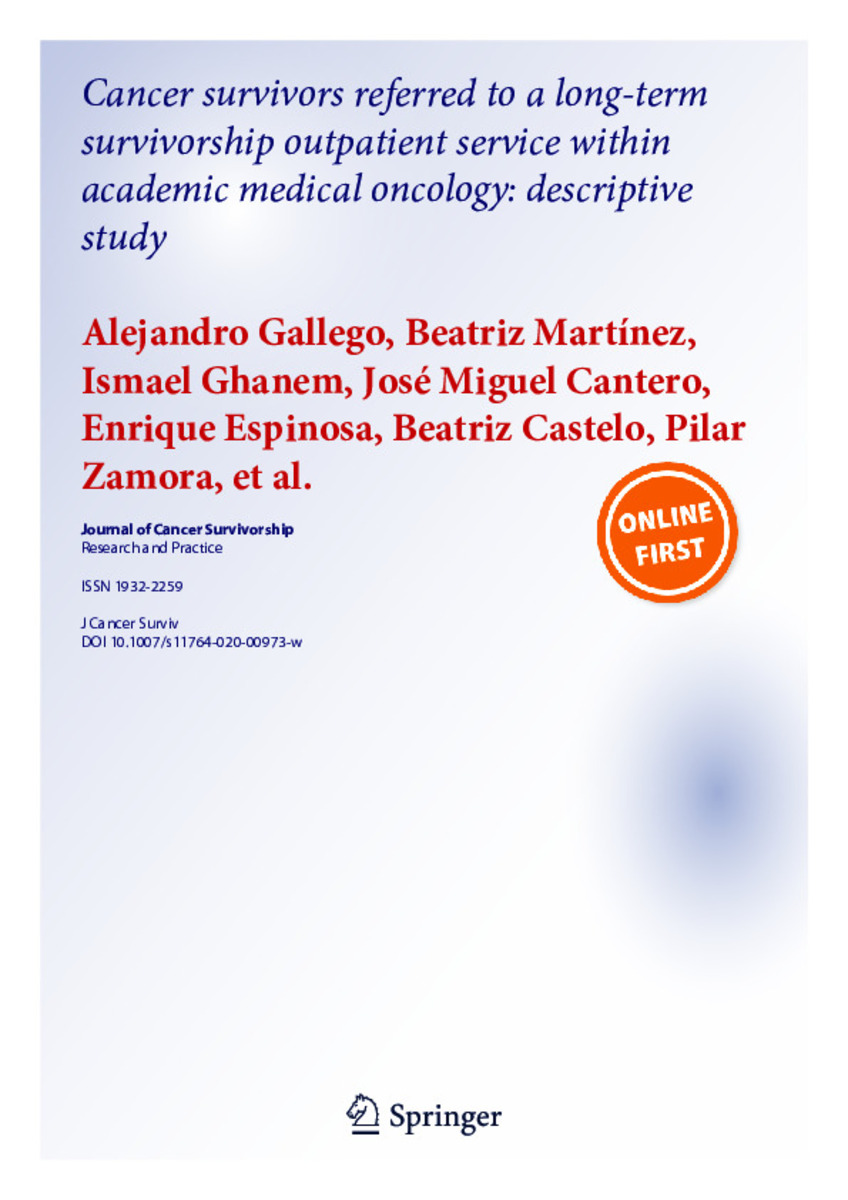Cancer survivors referred to a long-term survivorship outpatient service within academic medical oncology: descriptive study
Keywords:
Long-term Cancer Survivor
Follow-up
Quality of life
Care plan
Editorial note:
© Springer Science+Business Media, LLC, part of Springer Nature 2020
Citation:
Gallego-Martínez, A. (Alejandro); Martínez, B. (Beatriz); Ghanem, I. (Ismael); et al. "Cancer survivors referred to a long-term survivorship outpatient service within academic medical oncology: descriptive study". Journal of Cancer Survivorship. 15, 2021, 811 - 817
Statistics and impact
0 citas en

0 citas en

Items in Dadun are protected by copyright, with all rights reserved, unless otherwise indicated.







